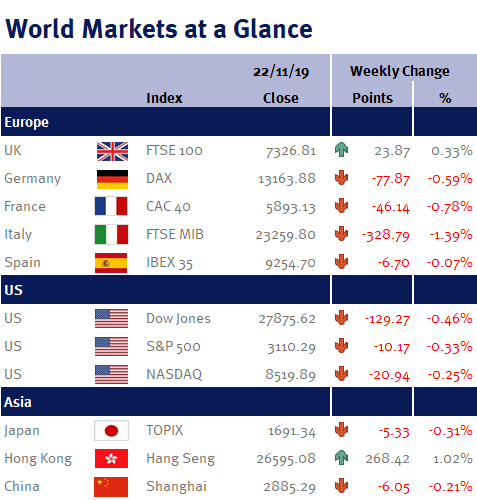While US data released since the Fed’s decision at the end of last month has borne out his conviction (as employment, retail sales and ISM manufacturing data has all improved), risks to his outlook still remain and his optimism for a quick rebound in the global economic growth may be misplaced. Additionally, core US inflation slowed on a year-on-year basis to 2.3% from 2.4% despite the recent new tariffs on Chinese goods (which are inflationary), while softening core goods prices suggests that the Fed’s preferred inflation measure (the core PCE deflator) is highly likely to remain below their 2% target – reinforcing our view that a more expansive monetary policy is needed.
Furthermore, data released on Saturday (9 November 2019) showed Chinese producer prices dropped for a fourth month in October – which could result in disinflation around the globe and present new challenges for the major global central banks which are already struggling to revive inflation.
Elsewhere, as expected, UK Q3 GDP rebounded 0.3% after the economy contracted by 0.2% in Q2. While the rebound means that the UK avoids a recession (officially defined as two successive quarters of economic contraction) there is little to cheer about as it does nothing to change our view that the UK needs further stimulus/lower interest rates (not to mention Brexit clarity) as both manufacturing and business investment continues to be weak. In fact, the Q3 expansion was entirely due to a strong July, as the economy actually contracted by 0.2% in August and 0.1% in September – which also suggests that Q4 GDP is also likely to be weak.
We have a relatively quiet economic calendar ahead this week. Of most interest will be the minutes from the last Fed meeting (held over 29-30 October 2019).
Additionally, Boris Johnson and Jeremy Corbyn go head-to-head on this general election’s first TV debate (8pm Tuesday 19 November 2019 on ITV).
Investment Management Team


